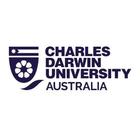Bachelor of Engineering Science
Bachelor of Engineering Science
Help to engineer the future. CDU’s Bachelor of Engineering Science will encourage you to think independently and find creative and logical solutions for real world challenges. The degree will provide both the scientific knowledge that underpins each discipline and hands-on practical experience in specialist areas of civil and structural, electrical…
Categories
COURSE DESCRIPTION
Help to engineer the future. CDU’s Bachelor of Engineering Science will encourage you to think independently and find creative and logical solutions for real world challenges.
The degree will provide both the scientific knowledge that underpins each discipline and hands-on practical experience in specialist areas of civil and structural, electrical and electronics or mechanical engineering.
Study 100% online (Domestic students only), or on-campus with flexibility to study full-time or part-time, and learn from award-winning engineers and lecturers.
This course has been developed in consultation with, and supported by, industry leaders so you’ll graduate with engineering skills that directly align with international industry requirements.
As an engineering technologist in:
civil and structural, you will be able to work with other engineers and technologists on the design and maintenance of structures for the modern world. Key areas include water resources, roads and traffic, bridges and marine structures. Your studies will focus on developing sustainable and ethical civil and structural solutions in areas such as structural engineering, water and its uses and the principles of sustainability.
electrical and electronics, you will be able to work together with engineers and technologists on the design, automation and control of the devices which make modern life convenient. You are involved in electronics, telecommunications, biomedical applications and power generation and distribution, including renewable energy.
mechanical, you will be able to collaborate with other engineers and technologists in the design and build of large and small devices which improve transportation and provide affordable manufacturing and production solutions. Key areas include mechatronics, robotics, biomechanical applications, aeroplanes, cars, pumps and pipelines.
You can combine this course with the two-year Master of Engineering to become a professional engineer. This pathway is similar to engineering programs offered in Europe and is an alternative to the traditional four-year Bachelor of Engineering Honours course.
Professional recognition
The Bachelor of Engineering Science (all specialisations) is accredited by Engineers Australia at the level of engineering technologist and therefore recognised internationally under the Sydney Accord.
REQUIREMENTS
Admission requirements are met by one of the following:
Successful completion of the Northern Territory Certificate of Education and Training (or equivalent) and the awarding of an Australian Tertiary Admissions Rank (ATAR) of at least 60.
Successful completion of a national qualification at Certificate IV level or higher.
Successful completion of at least 0.5 year of full-time study (or equivalent) of a higher education degree/diploma.
Overseas secondary or tertiary qualifications considered equivalent to the above Australian qualifications.
English language requirements
IELTS Academic Module: A minimum overall score of 6.0 with no band less than 6.0.
Cambridge Advanced English (CAE): A minimum overall score of 169, with no skill below 169.
Common European Framework Certificate of English Proficiency: A minimum overall grade of B2.
Pearson Test of English (PTE) Academic module: A minimum overall score of 50 with no score lower than 50.
TOEFL Internet-based Test (iBT): A minimum overall score of 60 and a minimum writing score of 21.
EDUCATIONAL INSTITUTION
Charles Darwin University (CDU) is a truly unique institution, headquartered in the Northern Territory and spanning the whole country with delivery sites in cities like Brisbane, Darwin, Perth, Melbourne and Sydney and regional hubs such as Alice Springs, Katherine and Palmerston. The university’s multi-campus, virtual and online expertise, course profiles, delivery methods, research activities and operation, result from a commitment to the regions in which it operates. At CDU, international students will benefit from the university’s relatively smaller class sizes and a low student-to-teacher ratio that is in the range of one teacher to every 15-20 students. International students have 11 campuses and centres located around Australia where they could be studying, from tropical Darwin, the outback of Alice Springs or in one of Australia’s more famous cities, Sydney. CDU is ranked number four among Australian universities for undergraduate employment outcomes.




